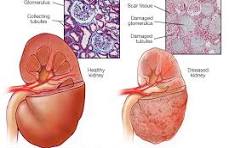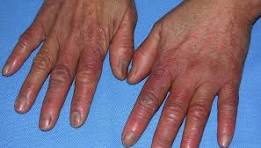INTRODUCTION:
Health is wealth—a simple yet profound truth. One sickness can drain a
lifetime of savings, leaving individuals and families in distress. While modern
medicine has made remarkable strides in diagnosing and treating diseases, many
health conditions continue to defy medical solutions, pushing us to explore
alternative approaches. There is no small sickness or disease just as there is no
small snake. Every snake whether big or small carries within itself venom or poison.
NATURAL REMEDIES FOR ATHEROSCLEROSIS
Atherosclerosis is a condition marked by the accumulation of plaque in
the arteries, which can restrict blood flow and increase the risk of heart
disease and other cardiovascular issues. While natural remedies can
offer supplementary support in managing this condition, they should be
used alongside professional medical advice and treatment plans. It is
important to work with a healthcare provider to monitor the progression
of the disease and determine the best approach to treatment. Below are
some natural remedies that may help manage atherosclerosis:
1. Garlic:
How it works: Garlic contains allicin, a compound with potential
anti-inflammatory and antioxidant properties. These properties
may help reduce plaque buildup and lower blood pressure, both
of which are beneficial for heart health.
Preparation: Crush 2-3 garlic cloves and let them sit for 5–10
minutes to activate the allicin. Consume it raw or incorporate it
into meals for maximum benefit.
Usage: Incorporate garlic into your daily diet by adding it to
salads, soups, or stir-fries.
2. Turmeric:
How it works: Turmeric is rich in curcumin, a powerful anti-
inflammatory and antioxidant compound. Curcumin may help
reduce inflammation in the arteries, thus improving
cardiovascular health.
Preparation: Mix 1 teaspoon of turmeric powder with a pinch of
black pepper in a glass of warm milk or water to enhance
absorption of curcumin.
Usage: Drink turmeric milk daily or add turmeric to your cooking
to enjoy its benefits.
3. Ginger:
How it works: Ginger has anti-inflammatory properties that may
help reduce arterial inflammation and improve blood circulation,
which can be beneficial for managing atherosclerosis.
Preparation: Slice or grate a small piece of fresh ginger and
steep it in hot water to make ginger tea.
Usage: Drink ginger tea 2-3 times a day to support cardiovascular
health.
4. Olive Oil:
How it works: Olive oil is rich in monounsaturated fats and
antioxidants that can help lower LDL (bad) cholesterol levels,
reducing the risk of plaque buildup in the arteries.
Preparation: Use extra virgin olive oil as a salad dressing or for
cooking instead of other oils.
Usage: Replace cooking oils with olive oil in your recipes for a
heart-healthy option.
5. Hawthorn Berry:
How it works: Hawthorn berries are thought to help dilate blood
vessels and improve blood flow, which may reduce the risk of
atherosclerosis.
Preparation: Make hawthorn berry tea by steeping dried
hawthorn berries in hot water.
Usage: Drink hawthorn berry tea 1-2 times daily to support
healthy blood circulation.
6. Pomegranate:
How it works: Pomegranates are rich in antioxidants and
polyphenols, which may help reduce the buildup of arterial
plaque and improve heart health.
Preparation: Consume fresh pomegranate seeds or drink pure
pomegranate juice.
Usage: Eat pomegranate seeds or drink 1-2 cups of pomegranate
juice daily for the best results.
7. Cayenne Pepper:
How it works: Cayenne pepper contains capsaicin, which can
help improve circulation and reduce blood pressure—important
factors for managing atherosclerosis.
Preparation: Mix 1/4 to 1/2 teaspoon of cayenne pepper in a
glass of warm water.
Usage: Drink this mixture 1-2 times a day to improve circulation
and support cardiovascular health.
8. Green Tea:
How it works: Green tea contains catechins, powerful
antioxidants that may help lower LDL cholesterol levels and
reduce the risk of atherosclerosis.
Preparation: Steep green tea bags or loose tea leaves in hot water
for several minutes.
Usage: Drink 2-3 cups of green tea daily to enjoy its heart-healthy
benefits.
Key Consideration
While natural remedies such as garlic, turmeric, ginger, and others may
have beneficial effects on cardiovascular health, they should not
replace prescribed medications or professional medical advice. It is
important to work with a healthcare provider to create a comprehensive
treatment plan that may include lifestyle changes, dietary adjustments,
and medications.
Regular monitoring and management of
atherosclerosis are essential to reduce the risk of heart disease and other
serious cardiovascular conditions. Incorporating these remedies into
your routine may complement other treatment options, but consistency
and caution are important when managing this condition.



